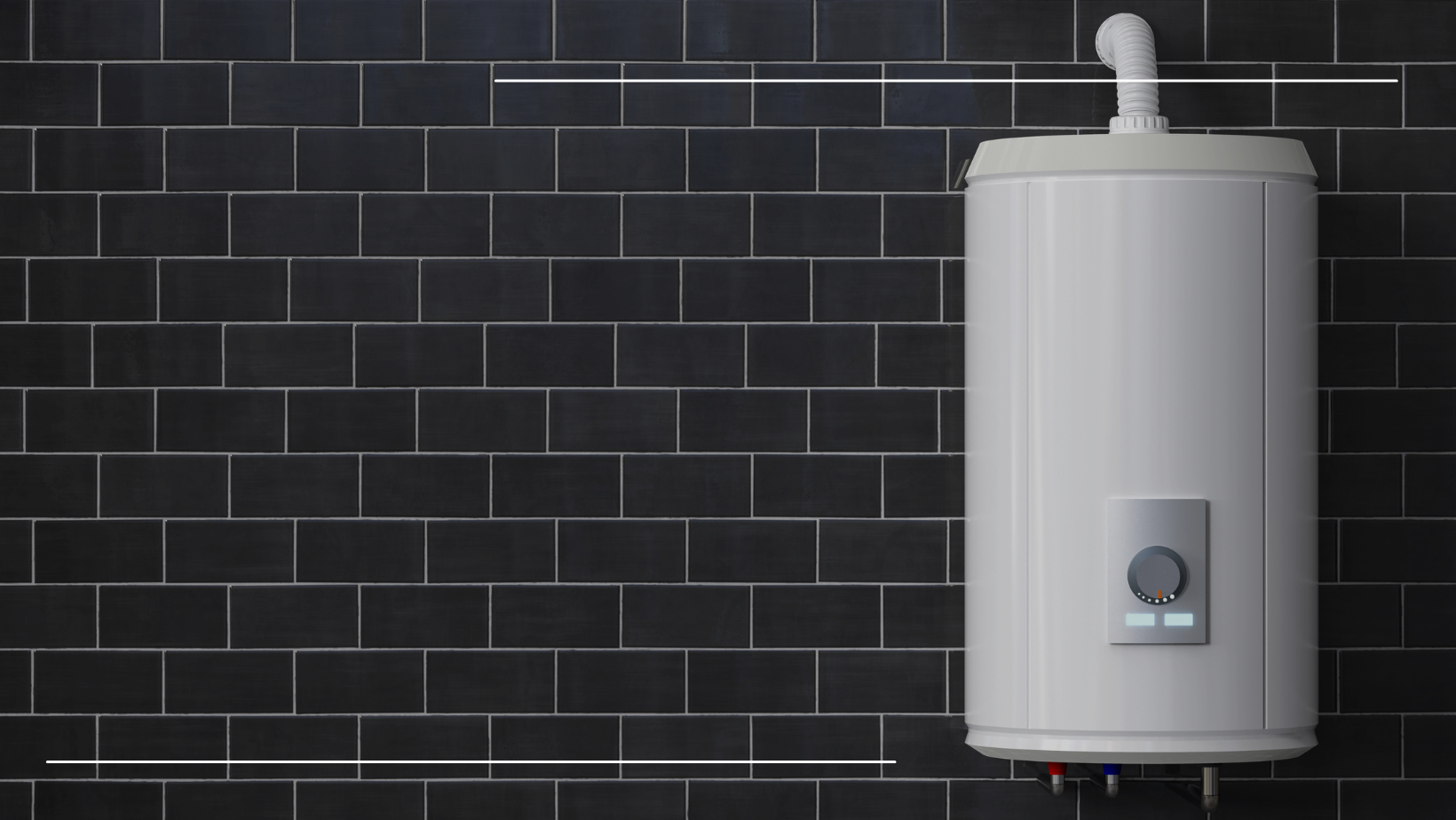This winter, most people shut off their water heaters and crank the temperature up to 120 degrees. Why do this? It’s not because cold showers are fun. When their water heater temperature is set that high, there’s less chance of freezing and burst pipes. But is it worth the risk? Here is why you might want to avoid doing this and learn a better solution. But first, what types of water heaters are available?
Types of Water Heaters (Gas and Electric)
There are three types of water heaters, and each has its advantages and drawbacks; conventional storage tank, tankless, and point-of-use.
Conventional Storage-Tank Water Heaters
Conventional storage-tank water heaters are the most common type of water heater. It comes in both gas and electric versions. They are generally cheaper than tankless models, but they use more energy over time because they must constantly reheat the same amount of water every time someone turns on their faucet or shower head. Gas models are more efficient than electric ones, but an electric model may be more convenient for your home’s power needs.
Tankless Water Heaters
A tankless water heater only heats water as it passes through the unit, eliminating the need for a storage tank. In this regard, they are more efficient than conventional storage-tank water heaters. However, they are also more expensive. They often require additional installation work because they do not have a built-in tank like most residential models.
Point-of-Use Water Heaters
Point-of-use water heaters are smaller and more efficient than conventional units, which makes them great for specific applications like bathrooms, laundry rooms, kitchens, and outdoors. They’re also less expensive to install than their counterparts.
Typical Guidelines for Water Heater Temperature
While the default temperature is 140 degrees, the safest temperature recommendation for a water heater is 120 degrees Fahrenheit. This allows for a safe and comfortable shower experience and a healthy growth of bacteria cultures in your hot water supply lines.
If you have small children or elderly people in your home, keeping the water heater temperature below 120 degrees Fahrenheit (49 degrees Celsius) is best. This way, they won’t get burned even if someone accidentally turns on a hot faucet.
If you have no reason to worry about burns and don’t have young children or elderly people visiting often, setting the thermostat at 120 degrees Fahrenheit works just fine.
How the Winter Impacts Water Heaters
Winter is a great time to take advantage of energy-saving opportunities, but it can also be when water heaters are more likely to fail.
Financing/Save Energy
Winter is here, which means making sure you only spend what you have on your water heater.
Here are some tips for keeping your water heater costs down and saving energy during the winter months:
- Check the temperature setting on your water heater. Try lowering it to the recommended degree or lower if possible.
- Do not be tempted to turn off your water heater when it’s not being used unless you will leave it for a considerable amount of time, at least for a month or longer.
- Install an insulation blanket around your water tank to reduce heat loss and increase efficiency.
May Cause Damages
While winter can be a fun time of year, it’s also the most dangerous time for your water heater. This is because it’s more susceptible to damage in colder weather. Here are things you should know about how winter can damage your water heater:
- The temperature of the ground outside affects how much heat your water heater gives off. The colder it gets outside, the less heat your water heater has to work with and the less effective it will be at heating up the water inside your home.
- Water heaters require more energy to run when cold because they have to work harder to get warm enough. This means that if an outage or other problem causes a power outage in your area, there could be issues with keeping an electric water heater running properly.
- The pipes tend to over-expand during colder months. This causes leaks and fires due to freezing conditions inside pipes which can result in permanent damage or destruction of property.
What to Do Instead
It’s cold outside, and you’re tempted to turn up the heat. But experts say that’s a bad idea. Why? Because if your water heater is set too high, it will cause property hazards, not to mention an expensive one.
Instead of doing this, call our professional plumbing expert at Green Group for help. We’ll ensure your water heater is set at the appropriate temperature so everything runs smoothly and safely all winter long.

